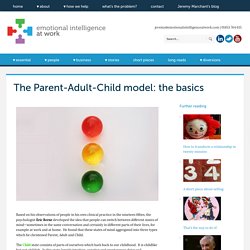

How Introverts and Extroverts Want to Be Appreciated in the Workplace. The authors of The 5 Love Languages stumbled onto a very poignant concept for the creation of successful family and romantic relationships—and readers agree.

The book has sold over 10 million copies. But who knew they created an equally compelling concept for the workplace? In their book The Five Languages of Appreciation in the Workplace, Gary Chapman and his co-author Paul White apply the idea of preferences regarding types of recognition and feedback to the workplace. There are five key ways to express appreciation to colleagues, and these can be used with direct reports, supervisors, or peers. We know extroverts and introverts often take rather different approaches to work, so it only makes sense to tailor the way feedback and appreciation are delivered to them.
So what are the five languages of appreciation, and how can you adapt them to introvert and extrovert employees? Words of Affirmation entail verbally communicating to your employee that they have done something valuable. Building Assertiveness in 4 Steps. All of us should insist on being treated fairly — to stand up for our rights without violating the rights of others. This means tactfully, justly and effectively expressing our preferences, needs, opinions and feelings. Psychologists call that being assertive, as distinguished from being unassertive (weak, passive, compliant, self-sacrificing) or aggressive (self-centered, inconsiderate, hostile, arrogantly demanding). Because some people want to be “nice” and “not cause trouble,” they “suffer in silence,” “turn the other cheek,” and assume nothing can be done to change their situation.
The rest of us appreciate pleasant, accommodating people but whenever a nice person permits a greedy, dominant person to take advantage of him/her, the passive person is not only cheating him/herself but also reinforcing unfair, self-centered behavior in the aggressive person. To speak up, make requests, ask for favors and generally insist that your rights be respected as a significant, equal human being. Assertiveness. » The Parent-Adult-Child model: the basics.
Based on his observations of people in his own clinical practice in the nineteen fifties, the psychologist Eric Berne developed the idea that people can switch between different states of mind—sometimes in the same conversation and certainly in different parts of their lives, for example at work and at home.

He found that these states of mind aggregated into three types which he christened Parent, Adult and Child. The Child state consists of parts of ourselves which hark back to our childhood. It is childlike but not childish. In this state “reside intuition, creative and spontaneous drive and enjoyment”. The Parent state reflects the absorption over the years of the influences of our actual parents and of parent and authority figures such as teachers, bosses and so on. The Adult state is where we hope to be as adults. Diagrammatically, a person’s personality is represented as below: Relationships A typical relationship is represented thus: Understanding Communication Styles & Improving Relationships In The Workplace.
Do you know why sometimes even the people you like frustrate the heck out of you?

It comes down to different communication styles and personality quirks. If you have ever struggled to get others to hear what you are saying or to 'like' you, or had that queasy feeling when you've cracked a joke, became critical or given a pep-talk that just didn't hit its mark, ... its possible that you used the wrong communication style when interacting with them. In this article you are going to get some tips on how to make sure that the 'right' version of you turns up when needed! Most people have distinctive personality traits - which is their way of dealing with the world (both inwardly and outwardly). For example, some people are laid back with a happy-go-lucky/devil-may-care attitude toward life.
The reality is we need to deal with all differing personality types (just as others need to deal with our personality shortcomings!). There are two aspects of Parent that you would have recorded: I'm OK, You're OK, by Thomas A Harris MD. 4 Steps to Assertive Communication.